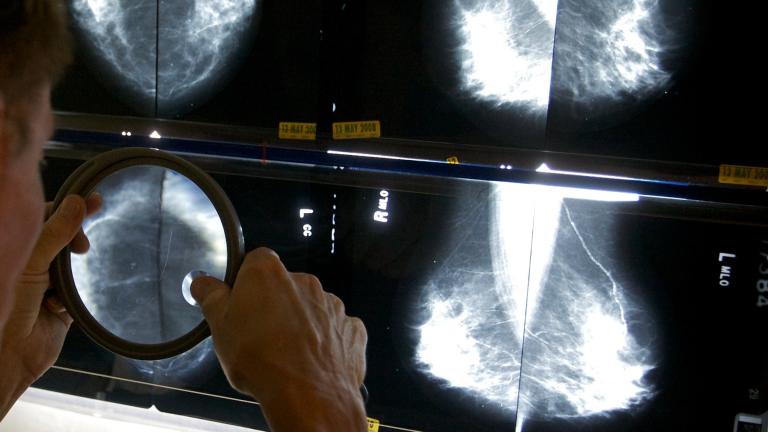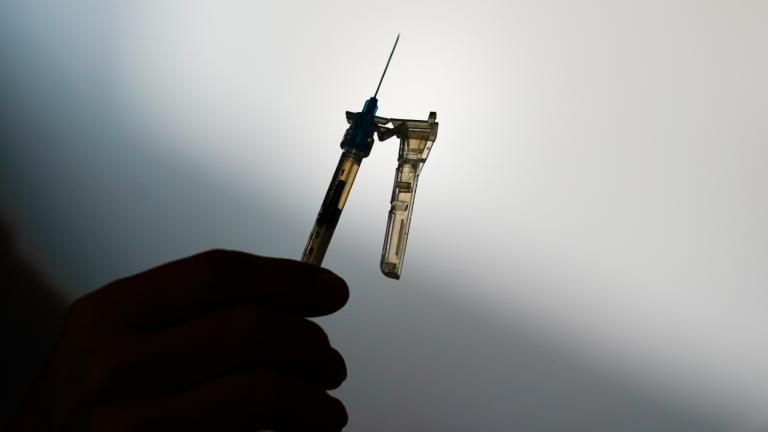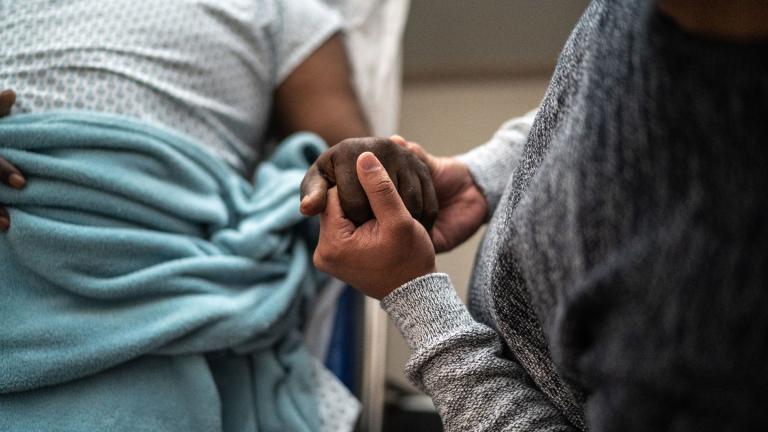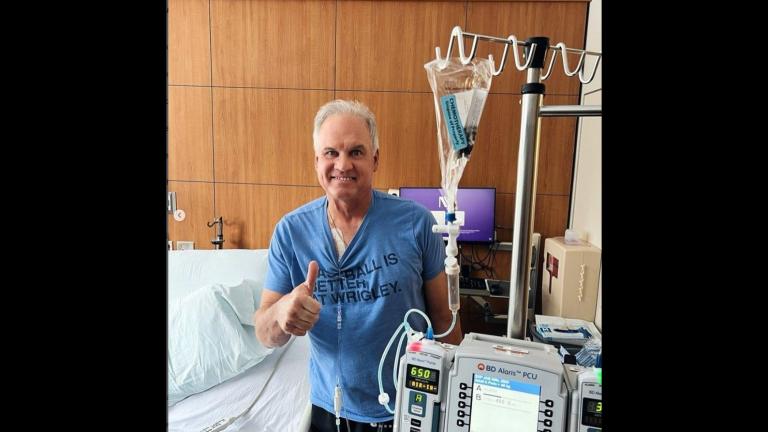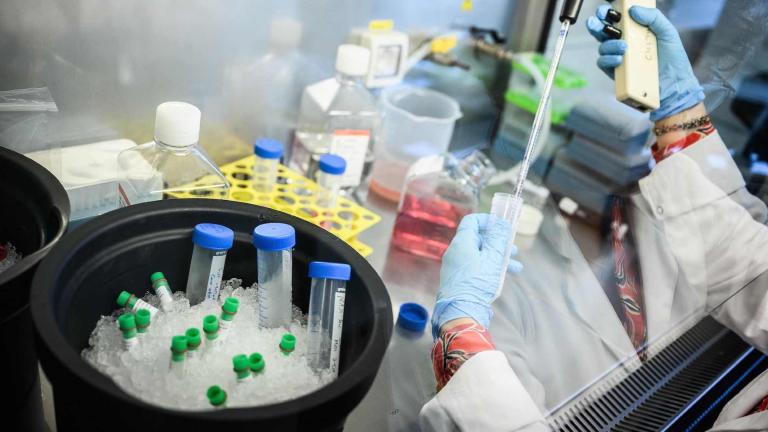 (WTTW News)
(WTTW News)
A major long-term study launched by the American Cancer Society on Tuesday aims to better understand cancer risk factors and outcomes for Black women in the U.S, who continue to face disparities in cancer prevention, detection, treatment and survival.
While the death rate for breast cancer in the U.S. has dropped 43% between 1989 and 2020, Black women are 40% more likely to die from the disease compared to White women, according to the American Cancer Society.
Results from the VOICES of Black Women study will help inform how to improve the health of Black women for generations to come, researchers said.
For the study, the American Cancer Society aims to enroll more than 100,000 Black women across 20 states — including Illinois — where more than 90% of Black women in the U.S. reside.
Eligible participants must identify as Black, be assigned female at birth or self-identify as women, be between the ages of 25 and 55 and not have a history of cancer, except basal or squamous skin cancer.
Study participants are expected to complete an online health and life history survey at enrollment and update their health information twice per year for at least 30 years.
Barriers that Black women experience when it comes to screening and treating cancer include lack of transportation to medical centers, lack of insurance, scheduling conflicts with jobs, concerns being ignored by physicians and the lack of consistent quality care depending on where patients go for care, according to Paris Thomas, executive director of Equal Hope.
The Chicago-based organization aims to eliminate health inequities through research, advocacy and patient navigation.
“The same quality in training that is poured into our big academic accredited centers and comprehensive cancer centers is not poured into the safety net hospitals,” Thomas said. “They have lower resources. They don’t have the amount of staff sometimes.”
Historical mistrust in the health care system is another barrier, which partially explains why Black women have long been underrepresented in health research, Thomas said.
Researchers with the American Cancer Society said they recognize that some might hesitate to be involved in the study due to the history of mistreatment and abuse of Black women and Black communities in research and the health system.
“It is important that we hear and address your concerns about research, treat you with respect, and demonstrate cultural humility,” the organization’s website says.
The American Cancer Society offers an FAQ page, which includes information on the study and how data will be used. Study participants can withdraw at any time after giving consent.
The VOICES of Black Women study is a crucial step toward achieving health equity in a population that is long overdue, according to Alpa Patel, American Cancer Society senior vice president for population science and co-principal investigator of the study.
“By centering Black women’s voices and experiences, we can dig deeper in uncovering the unique challenges and barriers contributing to cancer disparities and develop tailored interventions to mitigate them,” Patel said in a statement.
For more information about the study and how to participate, visit voices.cancer.org.
Contact Eunice Alpasan: @eunicealpasan | 773-509-5362 | [email protected]

